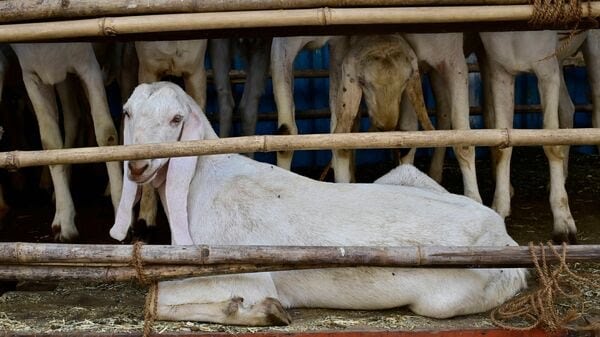Morocco has suspended the traditional animal sacrifice associated with Eid al-Adha this year following a royal directive. King Mohammed VI urged citizens to abstain from slaughtering livestock due to worsening economic conditions and a prolonged agricultural crisis, reported the Mint.
The royal appeal was first made in February when King Mohammed VI, through a statement read by the Minister of Islamic Affairs Ahmed Toufiq on state television, cited the deepening impact of a six-year drought and spiraling livestock prices. The monarch warned that maintaining the ritual under current circumstances would cause significant hardship to low-income families.
To maintain the spiritual essence of the festival, the King, who also holds the position of Morocco’s highest religious authority, announced he would perform the sacrifice on behalf of all Moroccans.
Morocco’s sheep population has declined by nearly 38% due to persistent dry weather since 2016. This has led to a steep rise in prices — with some sheep costing over $600 (₹51,000), far exceeding the monthly minimum wage of $324 (₹27,800).
According to a survey by the Moroccan Centre for Citizenship, over 55% of families last year reported difficulty affording a sacrificial animal.
With more than 99% of the population identifying as Muslim, Morocco is a deeply religious country. Eid al-Adha, celebrated this year on June 7 in Morocco (a day later than in Saudi Arabia and India), is among the most significant Islamic festivals, commemorating Prophet Ibrahim’s willingness to sacrifice his son in obedience to Allah — a moment where Allah replaced the son with a ram.
Despite this, Moroccan authorities have launched a nationwide crackdown on temporary livestock markets to enforce the ban.
This isn’t the first time Morocco has suspended Eid animal sacrifices. Former King Hassan II had earlier called off the ritual three times during his reign — during periods of war, drought, and IMF-imposed austerity.
In response to the livestock crisis, Morocco’s 2025 budget eliminated import duties and VAT on cattle and sheep in a bid to stabilize domestic meat prices. The country has one of Africa’s highest red meat consumption rates and has lost a third of its national livestock in less than a decade.
This royal decision represents a rare but pragmatic departure from tradition, balancing religious observance with economic reality and environmental sustainability.




